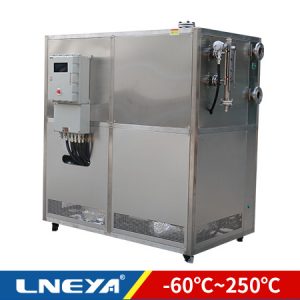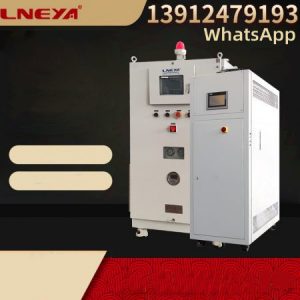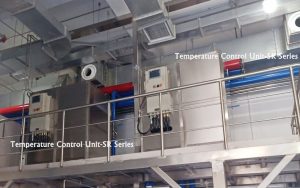Attention points for daily inspection of low temperature control equipment at minus 30℃
The low temperature control equipment at minus 30 degrees Celsius is a refrigeration unit or also called a refrigeration unit. The difference from the chiller is the temperature range. It is a commonly used low-temperature equipment in the industry and needs to operate for a long time. So what points should be paid attention to in daily inspection during operation?

1. Power supply part inspection
Before installation, the low temperature control equipment of minus 30 degrees Celsius will make a plan for the surrounding installation environment, circuit and power supply. If the conditions and standards are suitable, the installation will be carried out, and the installation will be re-planned if the conditions are not suitable. After a long period of use, check the power supply part to see if the power supply accessories are damaged, whether the wires inside and outside the equipment are aging, and whether there is damage. If there are problems, check and correct them in time.
2. Refrigerant inspection
The refrigeration effect in the low temperature control equipment of minus 30 degrees Celsius is a more critical part. If the refrigerant leaks, it will affect the refrigeration temperature, fail to achieve the expected refrigeration effect, and affect the overall work progress. While checking the refrigerant of the low temperature control equipment at minus 30 degrees Celsius, check whether the joints of the relevant parts are loose or cracked. If there is a problem, solve it quickly to avoid refrigerant leakage. If a refrigerant leak is found, it needs to be supplemented, and it needs to be added in accordance with relevant standards.
3. Pipeline inspection
The low temperature control equipment of minus 30 degrees Celsius needs to be inspected after a certain period of time to see if there is any leakage. If a leak is found, it needs to be repaired, and then used after checking that there is no leakage.
Related recommendations
-
What are the functions of the reactor temperature control system?
1533The reactor temperature control system is equipped with various reactors for high and low temperature reflection of liquid and solid. The temperature control system of LNEYA reactor adopts fully closed circulation pipeline, which is efficient in o...
View details -
Introduction to the quality and configuration of industrial refrigeration and heating circulators
1320With the development and progress of society, industrial refrigeration and heating circulators are used more in the industry, and the technological level is becoming more and more complex. So, what should users pay attention to after purchasing th...
View details -
Refrigeration and heating temperature control system for multiple reactors
14781. There are some differences in the quality and configuration of the refrigeration and heating temperature control systems of multiple reactors from different manufacturers. Some equipment will have some noise during operation, and the noise is l...
View details -
Temperature control unit necessary for Chinese medicine chemical raw material extraction-TCU
1812The production process of traditional Chinese medicine raw materials is relatively complicated: long process, many pipelines, and complicated operations; and most of the preparation raw materials are unstable, such as high environmental parameters...
View details
 LNEYA Industrial Chillers Manufacturer Supplier
LNEYA Industrial Chillers Manufacturer Supplier














